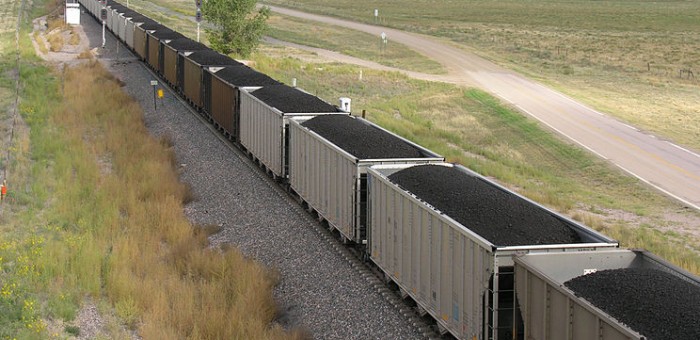Government Response to Questions about FSD Air Quality Case
Right now, Metro Vancouver is embroiled in a court case with Fraser Surrey Docks LP (FSD). The outcome of that case, which is being fought over a relatively minor $1000 fine, will have important implications for our province’s ability to regulate air quality.
Here’s the essence of it: Air quality falls within provincial jurisdiction. This means that the provincial government has the power to set and enforce air quality standards. The British Columbia government has chosen to delegate some of that authority to Metro Vancouver so that it can enforce those standards on behalf of the province. When Metro Vancouver tried to enforce its standards on FSD after soy bean dust was discharged in a manner contrary to regulations, the port refused to pay the fine. Their view is that ports are federal lands, under federal jurisdiction— provincial air quality laws do not apply in the same way. So the courts now have to decide if the province has the power to regulate air quality at FSD.
Why does this matter?
Because if the province can regulate air quality on port lands, it could theoretically use that power to stop certain port activities, like the expansion of thermal coal exports that is currently underway at FSD.
Thermal coal is the single biggest contributor to global warming. Unlike metallurgical coal, which is mined in B.C, thermal coal passing through our ports largely comes from the U.S., meaning that it contributes to only a handful of B.C. jobs. Stopping the expansion of these exports would represent an important step forward in the transition to a low carbon economy.
Yet, there’s also a bigger issue here: British Columbians should have a right to regulate their own air quality. After all, we’re the ones that breathe it.
Given the significance of this court case for our province, I asked the government to clarify its role. Specifically, I asked:
- What is the government’s position on the validity of the ticket (#006035) issued to Fraser Surrey Docks LP by the Greater Vancouver Regional District for the discharge of air contaminants?
- In your government’s opinion, how far reaching are the powers surrounding air quality that you have delegated to the Greater Vancouver Regional District? Do they include federal port lands?
- What is the historic and current involvement of the province in this case?
- Following question three, does the province have any plans to either remain involved or get involved in this case in the future? If so, what are these plans?
Yesterday, I received a disappointing response from the Minister of the Environment, Mary Polak. While her letter acknowledged the importance of the court case, she was clear that the government “will await the court’s decision before commenting further.”
I understand the desire not to comment on a matter that is before the courts. Yet, I would hope that with an issue as fundamental as the quality of our air, our government would be more open with British Columbians about the role they are taking in the case.
The courts will rule in the coming months on the validity of this air quality permit. When they do, we should all be looking to the provincial government to see what it will do to help stop the expansion of thermal coal exports and to protect our right to healthy air in B.C.





2 Comments
I just received the following email today from the Canadian Environmental Assessment Agency (CEAA) regarding the Environmental Impact Assessment (EIS) for the Roberts Bank Terminal 2 Project. The letter is the response by CEAA to the comments submitted by the public on the EIS.
I thought you would be interested to read CEAA’s comments about the Air Quality Assessment.
Pages 10 and 11
#20 – Metro Vancouver Ambient Air Quality Objectives
Rationale: The EIS (pg. 9.2-8) reports that the Government of British Columbia has delegated the Greater Vancouver Regional District (or Metro Vancouver) as the single agency under which provincial and municipal air pollution control activities would be integrated in the Greater Vancouver urban area. The EIS also further states that regional objectives and standards are considered for comparison purposes only, but does not provide a rationale for this consideration
Information Required: Provide clarification on how the Metro Vancouver Ambient Air Quality Objectives were applied in the assessment of air quality effects and the determination of the significance of effects on Human Health and Potential or Established Aboriginal and Treaty Rights and Related Interests, including Current Use of Lands and Resources for Traditional Purposes.
source: email below
The Canadian Environmental Assessment Agency has provided additional information requirements to Port Metro Vancouver with respect to the Environmental Impact Statement for the Roberts Bank Terminal 2 Project. The document can be found at: http://www.ceaa-acee.gc.ca/050/documents/p80054/102083E.pdf.
This should have important implications for the court case that is ongoing between Fraser Surrey Docks and Metro Vancouver over soybean dust.
http://www.newwestnewsleader.com/news/metro-air-pollution-authority-contested-in-court-1.1937220
Can I assume that Metro Vancouver have had this info conveyed to them.
Andrew